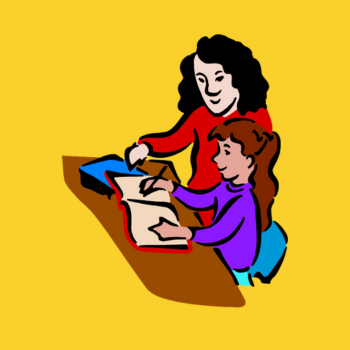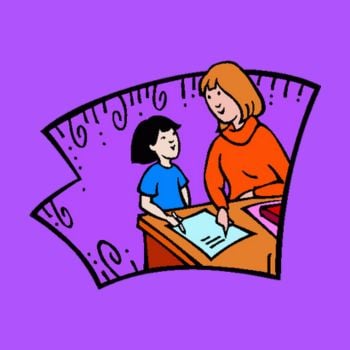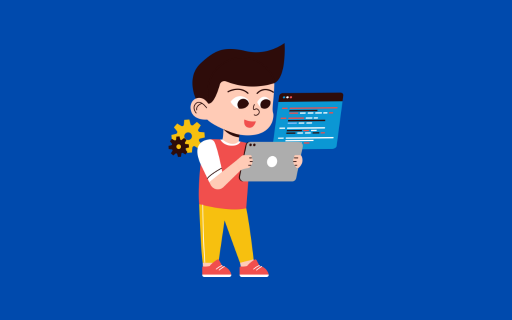Conversation with Noble Vashisht conducted by Harit Khattar, a class 11 student of Bhavan Vidyalaya, Chandigarh, and Emerging Leader with NoticeBard.
Please give me a brief introduction of yourself.
I am Noble, a devoted science teacher with an unwavering passion for igniting the flames of curiosity and knowledge in young minds. With 40 enriching years of experience as a beacon of education, I have dedicated my life to nurturing the scientific spirit within my students.
As a science educator, I firmly believe in the transformative power of education. My journey has been one of constant exploration, both for myself and for those under my guidance. Through hands-on experiments, captivating demonstrations, and insightful discussions, I strive to make the world of science come alive in my classroom.
My goal is not just to impart facts, but to instill a deep understanding of the fundamental principles that govern our universe.
What is your educational background, job history and work experience?
I am a qualified science teacher, having done my M. Phil., M. Sc. Zoology (Hons School), B. Ed. I have worked with esteemed institutions like Bhavan Vidyalaya, Vivek High School and Saupin’s School, all in Chandigarh. My total experience is approximately 15 years.
Why did you pursue this career?
My mother has retired as a teacher. The way she conducted herself and the respect, love and affection she earned from her students motivated me. Moreover, the difference a teacher can make to the lives of her students is immeasurable. I became a teacher as I love to interact with the students.
What is the minimum qualification required to be an educator and what are the career opportunities in the teaching profession?
Minimum qualification is a graduation degree and a degree in education.
What do you find most frustrating about teaching?
The policies made by the people who have not themselves experienced what a teacher faces.
How do manage your classroom?
I establish clear and consistent rules, expectations, and routines from the very beginning of the school year. I use positive reinforcement techniques such as praise, rewards, and recognition to encourage desired behaviour.
How do you stay motivated at work?
The spark in my student’s eyes keeps me motivated. The thought that I am making a difference in their life is very encouraging.
After COVID-19, mobile usage is very high in the younger generation, and they are starting to live in the virtual world. Please give some tips to reduce their screen time.
Reducing screen time and helping the younger generation strike a healthier balance between their virtual and real-world experiences is indeed important. Have open and non-judgmental conversations about the importance of balancing screen time.
Discuss the potential negative effects of excessive screen use on physical and mental well-being. Encourage participation in outdoor and physical activities that don’t involve screens. Sports, hobbies, and simply spending time in nature can help reduce reliance on screens.
We observed a lot of incidents happening due to stress and depression in young children. What would you suggest to control & monitor this issue?
Addressing stress and depression in young children requires a multifaceted approach that involves parents, educators, mental health professionals, and the children themselves. Educate parents, teachers, and children about the signs and symptoms of stress and depression in children.
This awareness can lead to early intervention. Introduce mental health and emotional well-being programs in schools. These programs can teach children coping skills, emotional regulation, and stress management techniques.
Create a supportive environment. Encourage open communication and provide opportunities for children to express their emotions.
What did you like/dislike about the online education system?
Online education offers flexibility in terms of when and where learning takes place. Students can access materials and lectures at their convenience, allowing for better integration with other responsibilities.
Online education can lack the interpersonal interactions that are present in traditional classrooms. This can affect social skills, networking opportunities, and collaborative learning experiences.
Nowadays reading and writing skills are disappearing from a student’s profile. How can you educate and encourage them, as it is helpful to improve concentration and sharp memory?
Establish a classroom or home environment that is rich in books, magazines, and other reading materials. Make them easily accessible to students. Demonstrate your enthusiasm for reading and writing. Share your favourite books, articles, or writing experiences with students to inspire them.
Engage students in collaborative writing projects, such as creating a class story or newsletter. This promotes teamwork and peer learning.
What is the role of teachers in student’s as well as the country’s growth?
Teachers play a vital and multifaceted role in the growth of students and the development of a country. Their influence extends beyond imparting knowledge and encompasses shaping values, skills, attitudes, and the overall trajectory of individuals and society. Here’s an overview of the roles teachers play:
- Teachers are the primary source of education and knowledge for students. They deliver curriculum content, facilitate understanding, and promote critical thinking.
- They recognize the diverse needs and learning styles of students. They provide individualized support, adapting teaching methods to suit each student’s strengths and weaknesses.
- Teachers encourage a spirit of curiosity and creativity in students, fostering innovation and a culture of research and development.
- We as teachers can challenge social norms, prejudices, and biases by promoting inclusivity, tolerance, and respect for diversity.
- Teachers instil a love for learning that extends beyond formal education, encouraging students to be lifelong learners.
What are the drawbacks of the current education system in India? Do you have any suggestions to resolve these issues?
The education system in India has several challenges and drawbacks that have been identified over the years. Some of the key issues include:
- Rote Learning: The emphasis on rote memorization rather than understanding and critical thinking hampers the development of analytical skills and creative thinking among students.
- Lack of Practical Application: The education system often lacks practical and hands-on learning experiences, making it difficult for students to apply theoretical knowledge to real-world situations.
- Overemphasis on Examinations: High-stakes examinations and excessive focus on grades lead to a culture of competition and stress. The system often values performance in exams over holistic skill development.
- Inequality and Access: There are significant disparities in access to quality education between urban and rural areas, as well as across different socio-economic backgrounds.
- Outdated Curriculum: The curriculum is sometimes outdated and not aligned with the changing needs of the modern world, including advancements in technology and the job market.
- Lack of Teacher Training: Insufficient training and professional development for teachers can result in ineffective teaching methods and a lack of motivation among educators.
- Language Barrier: The use of a language that is not the mother tongue of many students can create barriers to effective communication and learning.
Image taken from here.






